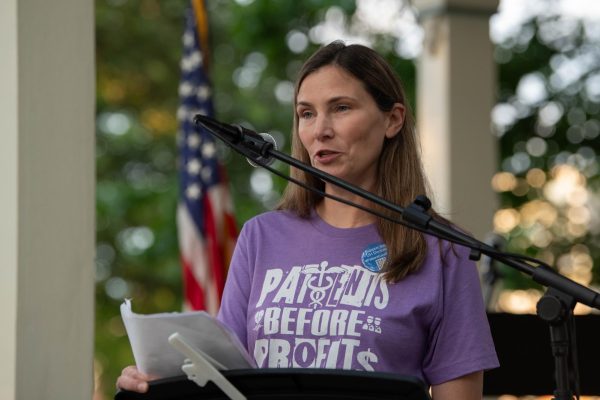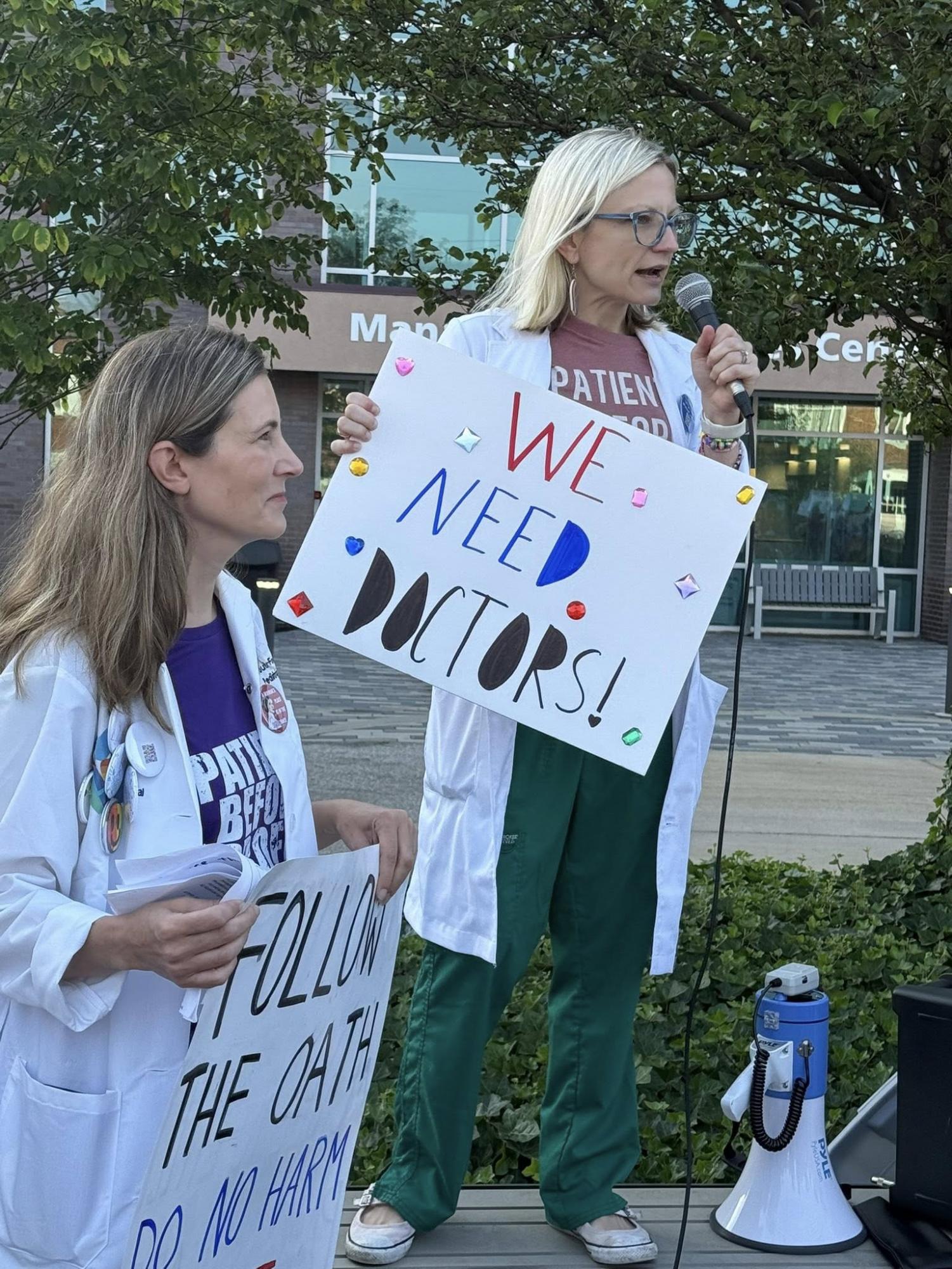This past June, University Hospitals (UH) fired two physicians, Dr. Lauren Beene and Dr. Valerie Fouts-Fowler. The two had been trying to form a union with other doctors to improve patient treatment via a care coordination app before their termination.
Beene, a general pediatrician and the co-founder of Ohio Physicians for Reproductive Rights, and Fouts-Fowler, who trained at Rainbow Babies and has worked in comprehensive pediatrics since 2012, saw systemic issues in their jobs that they wanted to address with a union. According to Medscape, Beene said that “patients were no longer able to get specialist care within a timely fashion and they decided they couldn’t take it anymore.”
UH reported that Beene and Fouts-Fowler used a care coordination app to access the personal data of over 4000 other physicians, sending them “unsolicited” texts. Beene and Fouts-Fowler did admit to sending those texts but, according to an interview with News 5 Cleveland, their sole intent was to unionize other physicians and “help doctors regain a voice in the decisions” made by the healthcare administrators.
“Every worker deserves the right to form or join a union,” Brian Pearson, executive secretary of the North Shore AFL-CIO, one of Ohio’s labor councils, said. He was alluding to the National Labor Relations Act (NLRA).
Beene and Fouts-Fowler filed a complaint with the National Labor Relations Board, claiming they cannot be fired for simply contacting other physicians. However, in UH’s statement, UH Vice President of Communications Michael P. Tobin maintained that the physicians’ firing “had absolutely nothing to do with union organizing.”
“We’re pretty sure there was somebody that was spying on us… We’re pretty big, approximately several, several hundred physicians strong, and undoubtedly we were powerful,” Beene said on America’s Work Force Union Podcast. “The way that UH responded to us gaining power is exactly why we need a union.”
The firing of these physicians sparked conversation around the consequences of retaliation not just for the workers who unionize but for those who are considering it and the patients they work for.
“It sends a message to other workers who may be considering a union that they too could face retaliation,” Pearson said. “Union workers typically earn higher pay, have stronger benefits, and most importantly, have a real voice at work.”
That kind of voice, like the one Beene and Fouts-Fowler had been advocating for, would benefit their patients by raising issues that only doctors themselves would know about.
These alleged retaliationary measures have been seen not just in Cleveland but also in other parts of America under the Trump administration. Union-busting tactics are growing more and more prevalent, such as Senate Bill 1, which restricts university faculty bargaining rights.
UH Cleveland Medical Center, which sits in the heart of Case Western Reserve University, is the place where many medical students at CWRU complete their internships. While CWRU students have not yet mobilized in support of the doctors, the retaliation has sparked hundreds of peaceful protestors to stand up in solidarity.
“It’s not just going to harm just physicians,” Beene said on the Work Force podcast. “This is going to harm patients in so many ways.”

allege was due to unionizing efforts.



